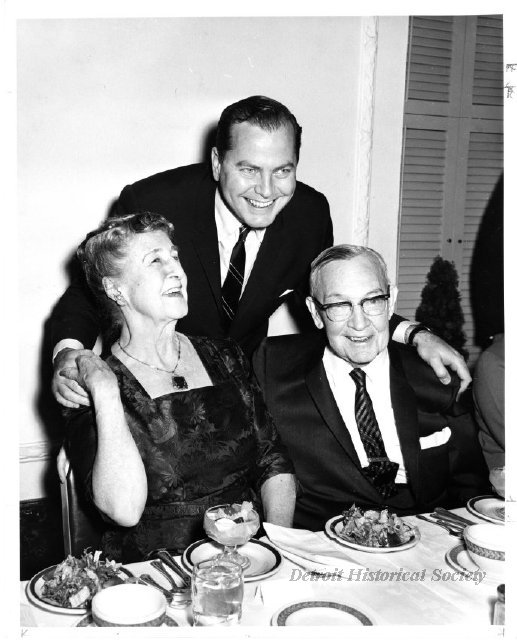Born in Detroit on June 16, 1928, Mayor Jerome Cavanagh attended the University of Detroit, earning an undergraduate degree in 1950 and a law degree in 1954. He practiced law in Detroit before he became the youngest person elected Mayor of Detroit when he took office at 33 years old in 1962. Despite a tough race against incumbent mayor Louis Miriani, Cavanagh won the election, drawing focus on Miriani’s poor race relations with Detroit’s African American population.
Cavanagh’s early policies endeared him to the city residents. He appointed a reformer as chief of police to curtail brutality and implemented an affirmative action program for most city agencies. In 1963, he welcomed Martin Luther King, Jr. to Detroit and marched with him down Woodward Avenue in the Walk to Freedom.
Cavanagh secured federal funding for Detroit through the Model Cities Program, leading to construction of new skyscrapers downtown and an improved economy. He was recognized nationally for his success with urban affairs, being featured in Time, Life and Newsweek magazines, as well as on the television program Meet the Press.
Cavanagh was re-elected by an overwhelming majority in 1965. Then in 1966, Cavanagh unsuccessfully ran for the United States Senate, losing in the Democratic primary to former Michigan governor G. Mennen Williams. Much of Cavanagh’s positive impact on the city was overshadowed by the 1967 Civil Disturbance. His last two years in office were difficult and he declined to run for reelection in 1969. After his two terms as mayor, Cavanagh worked as a lawyer in Detroit and taught law at the University of Michigan. In 1974 he made an unsuccessful attempt at running for governor.
Cavanagh died of a heart attack in 1979. He is buried in Mt. Elliott Cemetery in Detroit.

